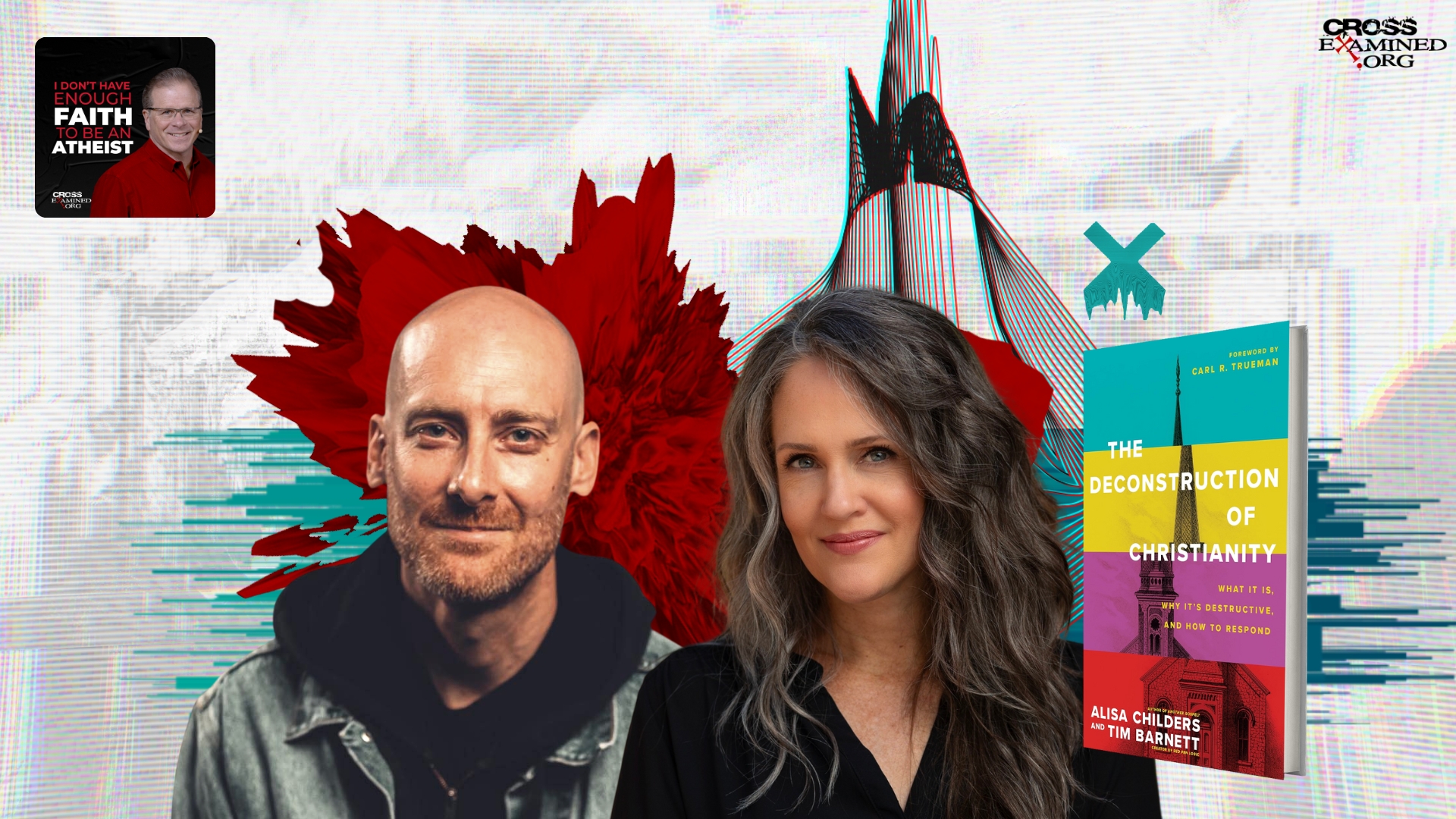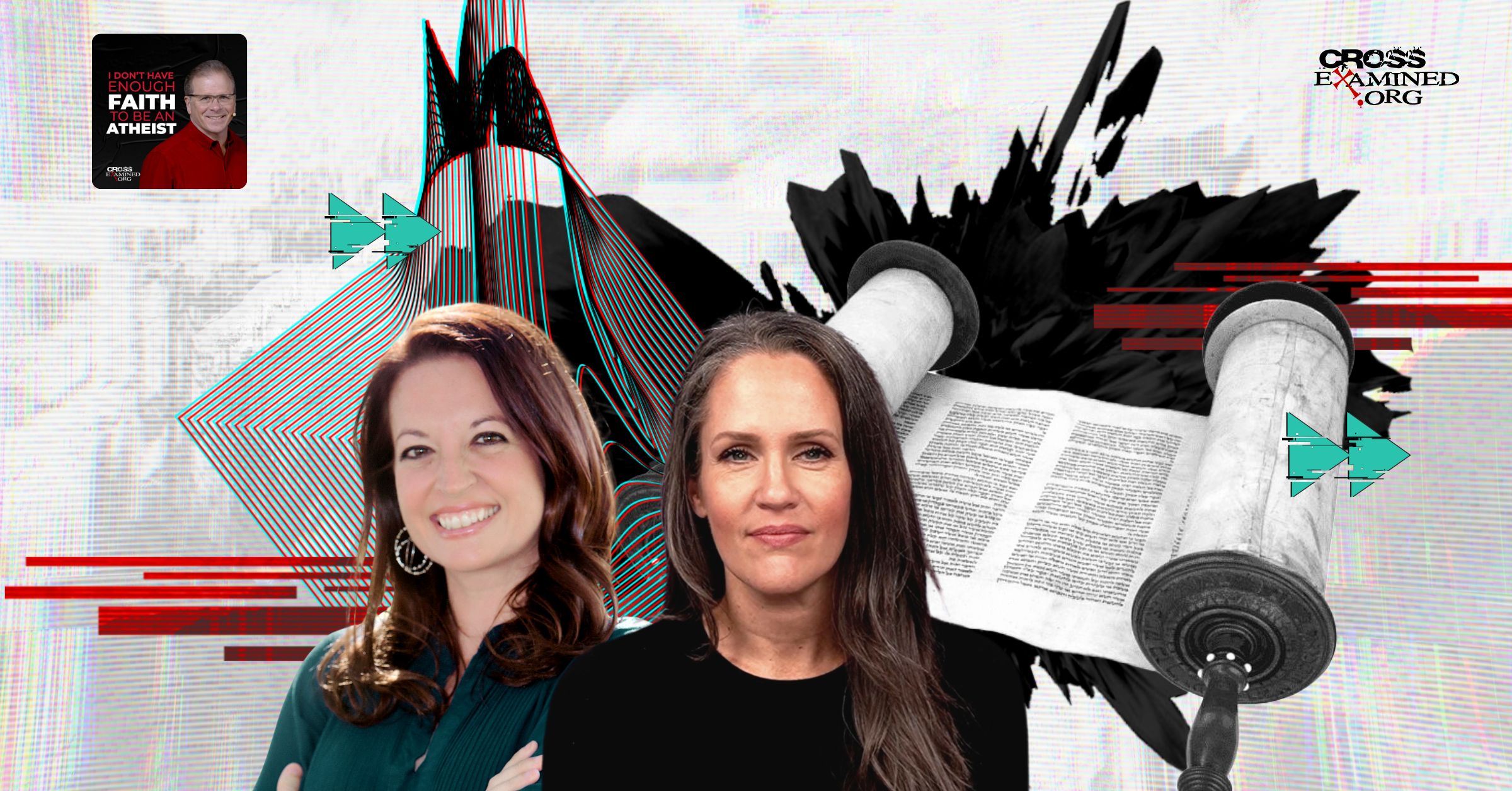If you have ever been involved in religious discussion on Facebook or Twitter, you have probably come across some version of the comment below:
I just think it’s interesting that the only book that even talks about Jesus is the Bible! I’m not even sure we can prove he actually existed.
Although this assertion is largely rejected by scholars in all spheres of historical and biblical studies, it tends to pop back up on social media like a never-ending game of digital whack-a-mole. The truth is that Jesus is not only documented in the eye-witness testimony compiled in the New Testament, but He is mentioned as a historical person by several non-Christian sources within 150 years of His life. From those sources, we can learn 10 things about Jesus without even opening a Bible:
1. He was known to be wise and virtuous.
This fact was reported by Jewish Historian Josephus, who was born around AD 37. In his Antiquities of the Jews, he reports:
At this time there was a wise man named Jesus. His conduct was good, and [he] was known to be virtuous.[1]
2. He had a brother named James.
In recounting the stoning of James, Josephus records:
So he assembled the sanhedrin of judges, and brought before them the brother of Jesus, who was called Christ, whose name was James, and some others; and when he had formed an accusation against them as breakers of the law, he delivered them to be stoned.[2]
3. He was known to perform miracles.
Celsus was a 2nd-century Greek philosopher and a fierce opponent of Christianity. In what is known to be the first comprehensive intellectual attack on Christianity, he tried to resolve why Jesus was able to perform miracles. The story is wild—but the main point is that by trying to explain away the miracles of Jesus, he is actually affirming that they happened:
Jesus, on account of his poverty, was hired out to go to Egypt. While there he acquired certain powers which Egyptians pride themselves on possessing. He returned home highly elated at possessing these powers, and on the strength of them gave himself out to be a god.[3]
4. He was crucified under Pontius Pilate.
This fact comes to us from one of the most trusted historians of the ancient world. Cornelius Tacitus was born in AD56 and served as a respected senator and proconsul of Asia under Emperor Vespasian. He wrote a history of the first century Roman Empire, which many historians consider to be the “pinnacle of Roman historical writing.”[4] He notes:
Christus, from whom the name had its origin, suffered the extreme penalty during the reign of Tiberius at the hands of one of our procurators, Pontius Pilatus.[5]
Josephus confirmed:
Pilate condemned him to be crucified and to die.[6]
5. His crucifixion was accompanied by darkness and an earthquake.
This fact was originally recorded by a Samaritan historian named Thallus, who was alive at the same time Jesus was (AD 5-60). He wrote a 3-volume history of the 1st-century Mediterranean world, which unfortunately no longer exists. But before his writings were lost, he was cited by another ancient historian, Julius Africanus, in AD 221. Africanus described Thallus’s account of what happened during Jesus’ crucifixion:
On the whole world there pressed a most fearful darkness; and the rocks were rent by an earthquake, and many places in Judea and other districts were thrown down.[7]
6. He had many Jewish and Gentile disciples.
Josephus wrote:
And many people from among the Jews and the other nations became his disciples. Pilate condemned him to be crucified and to die. And those who had become his disciples did not abandon discipleship.[8]
7. He lived during the time of Tiberius Caesar.
Julius Africanus also reported that another ancient historian, Phlegon, confirmed the darkness at the time of Jesus’s death and that Jesus was alive “in the time of” Tiberius Caesar:
Phlegon records that, in the time of Tiberius Caesar, at full moon, there was a full eclipse of the sun from the sixth hour to the ninth.[9]
8. His disciples believed that He rose from the dead.
In his commentary regarding the disciples’ reaction to Jesus’ death, Josephus recorded:
[Jesus’ disciples] reported that He had appeared to them three days after his crucifixion; and that he was alive….[10]
9. His disciples believed He was God, and they met regularly to worship Him.
Pliny the Younger lived from AD 61-113 and was an influential lawyer and magistrate of ancient Rome. In a letter to Emperor Trajan he wrote:
They [Christians] were in the habit of meeting on a certain fixed day before it was light, when they sang in alternate verses a hymn to Christ, as to a god, and bound themselves by a solemn oath, not to any wicked deeds, but never to commit any fraud, theft or adultery, never to falsify their word, nor deny a trust when they should be called upon to deliver it up.[11]
Lucian of Samosata was a 2nd-century Greek satirist known for his wit and sarcasm. Even though Christians were the object of his snark, he affirmed certain details about them:
The Christians, you know worship a man to this day—the distinguished personage who introduced their novel rights, and was crucified on that account….it was impressed on them by their original lawgiver that they are all brothers, from the moment that they are converted, and deny the gods of Greece, and worship the crucified sage, and live after his laws.[12]
10. His disciples were willing to suffer and die for their beliefs.
The persecution and suffering of early Christians was recorded by Suetonius, the official secretary of the Roman Emperor Hadrian around AD 121. He documented that they were expelled from Rome in AD 49 by Claudius:
Because the Jews at Rome caused constant disturbances at the instigation of Chrestus (Christ), he expelled them from Rome.[13]
and:
Nero inflicted punishment on the Christians, a sect given to a new and mischievous religious belief.[14]
Tacitus also confirmed Nero’s persecution of early Christians:
Nero fastened the guilt and inflicted the most exquisite tortures on a class hated for their abominations, called Christians by the populace.[15]
Conclusion:
From non-Christian and even anti-Christian sources, we can be sure that Jesus in fact existed, was crucified, was believed to be resurrected from the dead, and His many followers were willing to suffer and die for that belief. The next time someone claims that there is no evidence for Jesus outside the Bible, be sure to share these 10 facts with them!
References:
[1] Josephus, Antiquities of the Jews, 18.3.3 (There are more specific, fantastical, and supernatural versions of this quote in antiquity that are believed to have been interpolated. The quote I cite in this article is the one that most scholars agree is authentic. See Shlomo Pines, An Arabic Version of the Testimonium Flavianum and Its Implications, Israel Academy of Sciences and Humanities: Jerusalem, 1971, cited in J. Warner Wallace, Cold Case Christianity)
[2] Josephus, 20.9.1
[3] Origen, Contra Celsum, 1.28
[4] Ronald Mellor, Tacitus’ Annals, p. 23
[5] Tacitus, Annals, 15.44
[6] Josephus, 18.3.3
[7] Ante-Nicene Christian Library: Translations of the Writings of the Fathers Down to A.D. 325, eds. Alexander Roberts and James Donaldson, vol. 9, Irenaeus, Vol. II— Hippolytus, Vol. II— Fragments of Third Century (Edinburgh: T & T Clark, 1870), 188. (Cited in J. Warner Wallace, Cold Case Christianity.)
[8] Josephus, 18.3.3
[9] Ante-Nicene Christian Library, eds. Roberts and Donaldson, vol. 9, 188. (Cited in J. Warner Wallace, Cold Case Christianity.)
[10] Josephus, 18.3.3
[11] Pliny the Younger, Book 10, Letter 96
[12] Lucian, The Death of Peregrine, 11-13
[13] C. Suetonius Tranquillus, Divus Claudius, 25.4
[14] Suetonius, The 12 Caesars, Nero Claudius Ceasar, XVI
[15] Tacitus, Annals, 15.44
Recommended Resources:
The New Testament: Too Embarrassing to Be False by Frank Turek (DVD, Mp3, and Mp4)
Why We Know the New Testament Writers Told the Truth by Frank Turek (DVD, Mp3 and Mp4)
Another Gospel? by Alisa Childers (book)
Person of Interest: Why Jesus Still Matters in a World that Rejects the Bible by J. Warner Wallace (Paperback), (Investigator’s Guide).
Alisa Childers is an American singer and songwriter, best known for being in the all-female Christian music group ZOEgirl. She has had a string of top ten radio singles, four studio releases, and received the Dove Award during her time with ZOEgirl. In later years, Alisa found her life-long faith deeply challenged when she started attending what would later identify as a Progressive Christian church. This challenge pushed Alisa toward Christian Apologetics. Today you can read, listen and watch Alisa’s work online as well as purchase her recently published book on Progressive Christianity titled Another Gospel.
Originally posted at: https://bit.ly/3Ybe4dW











